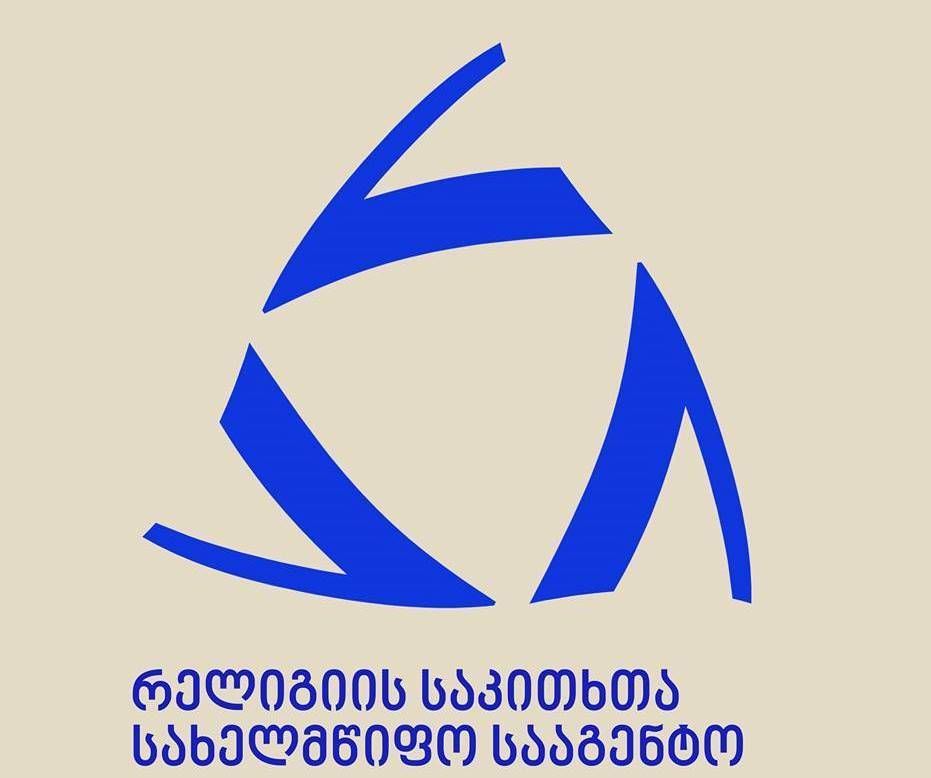


The European Commission against Racism and Intolerance (ECRI) of the Council of Europe, in its interim conclusion (CRI (2019)4) published on 5 March 2019, placed significant and critical emphasis upon the State Agency for Religious Issues. ECRI considers that the Georgian authorities did not implement the recommendations provided for in the fifth monitoring cycle report of 1 March 2016.
In particular, in 2016, the Commission recommended that the Georgian authorities scale up their support for the Council of Religions which operates under the auspices of the Public Defender’s Tolerance Center. According to ECRI's recommendation, the State Agency for Religious Issues should cooperate with the Council of Religions and utilize its expertise and recommendations in order to effectively tackle the problem of religious intolerance and freedom of religion. In the assessment published on 5 March 2019, ECRI points out that there have been no examples of co-operation between the Agency for Religious Issues and the Council of Religions in the recent years, and the interaction between them is rather minimal. The Commission expresses its concern that the Agency failed to cooperate with the Council of Religions and Public Defender's Institute regarding the religious dispute developed over the Mosque in Mokhe, Adigeni Municipality, in 2015, where the Muslims were requesting the involvement of the Public Defender in the Commission's work to review and resolve the conflict related to the Mokhe Mosque.
The Commission notes that instead of the cooperation between the two bodies there is a tension and an obvious clash of the opinions regarding the freedom of religion. This was revealed in the constitutional amendments proposed in 2017 aiming at subjecting freedom of religion to restrictions on grounds of national security goals. The State Agency for Religious Issues did not oppose the initiative. This was a significant signal for religious groups and organizations working on human rights to view the Agency as a mechanism designed particularly to control religious organizations.
The criticisms of the mandate and activities of the State Agency for Religious Issues have been expressed multiple times by some religious groups, as well as the Public Defender and human rights organizations. Periodically, the issue of the abolition of the Agency is also advocated. The Agency was established in 2014 and has operated for more than 5 years, but the public cannot recall any progressive initiatives or decisions provided by the Agency in order to support freedom of religion and equality. On the contrary, the Agency regularly presents on the agenda its retrograde ideas and initiatives focused on security, hierarchy and interference with religious organizations. The problem has become especially obvious recently in the initiative proposing a Law on Religions and in the approach of the Head of the Agency to promote the hierarchy and amendments "favourable for the majority". All systemic problems facing religious organizations that have existed over the years at legislative, institutional and administrative level remain unresolved, among them are the discriminatory provisions in the legislation, non-fulfillment of restitution obligations in relation to non-dominant religious groups, restoration and protection of historic cult buildings, revision of the existing undemocratic and discriminatory practices of financing, and fair resolution of pending disputes.
The Agency failed to create a discussion platform for religious organizations based on the principles of democracy, freedom and equality. Furthermore, the body did not facilitate the communication of religious organizations with the highest ranking government officials and ensure the development of the working formats oriented on the systematic amendments of the policy and legislation in free environment. According to our estimation, the Agency is substantially focused on the control of religious organizations and the relationship of the Agency with religious organizations is in contradiction to the principles of institutional independence and religious neutrality of the state and religious organizations.
Interestingly, the State Agency for Religious Issues has responded to the critical assessment of ECRI by appointing a representative in the Kvemo Kartli region, which is an attempt to create an impression of efficient performance and further increases the risks at the micro-level.
Considering the above assessments, the Coalition for Equality urges the Prime Minister, under whose immediate subordination the State Agency for Religious Issues is, to:
- Steadily implement ECRI recommendations;
- Revise the mandate, strategy and activities of the Agency and to establish the State’s policy in the field of freedom of religion on the principles of human rights and equality.
- Enhance the communication of the government with the Council of Religions under the auspices of the Public Defender and support recommendations and initiatives developed by the religious organizations in a democratic and equal format.
Georgian Young Lawyers' Association (GYLA)
"Human Rights Education and Monitoring Center (EMC)"
Women's Initiatives Support Group (WISG)
"Partnership for Human Rights (PHR)"
"Georgian Democratic Initiative (GDI)"
"Tolerance and Diversity Institute (TDI)"
ჯ. კახიძის #15, თბილისი, საქართველო, 0102 ; ტელ: (995 32) 95 23 53; ფაქსი: (995 32) 92 32 11; ელ-ფოსტა: gyla@gyla.ge; www.gyla.ge
15, J. Kakhidze str. 0102, Tbilisi, Georgia. Tel: (995 32) 95 23 53; Fax: (995 32) 92 32 11; E-mail: gyla@gyla.ge; www.gyla.ge